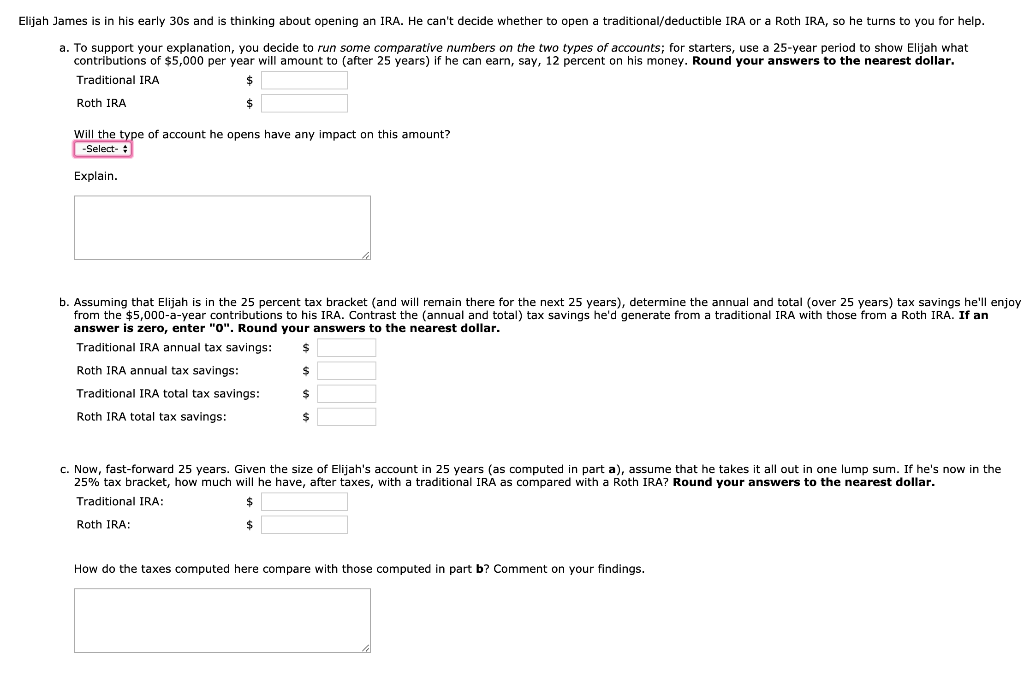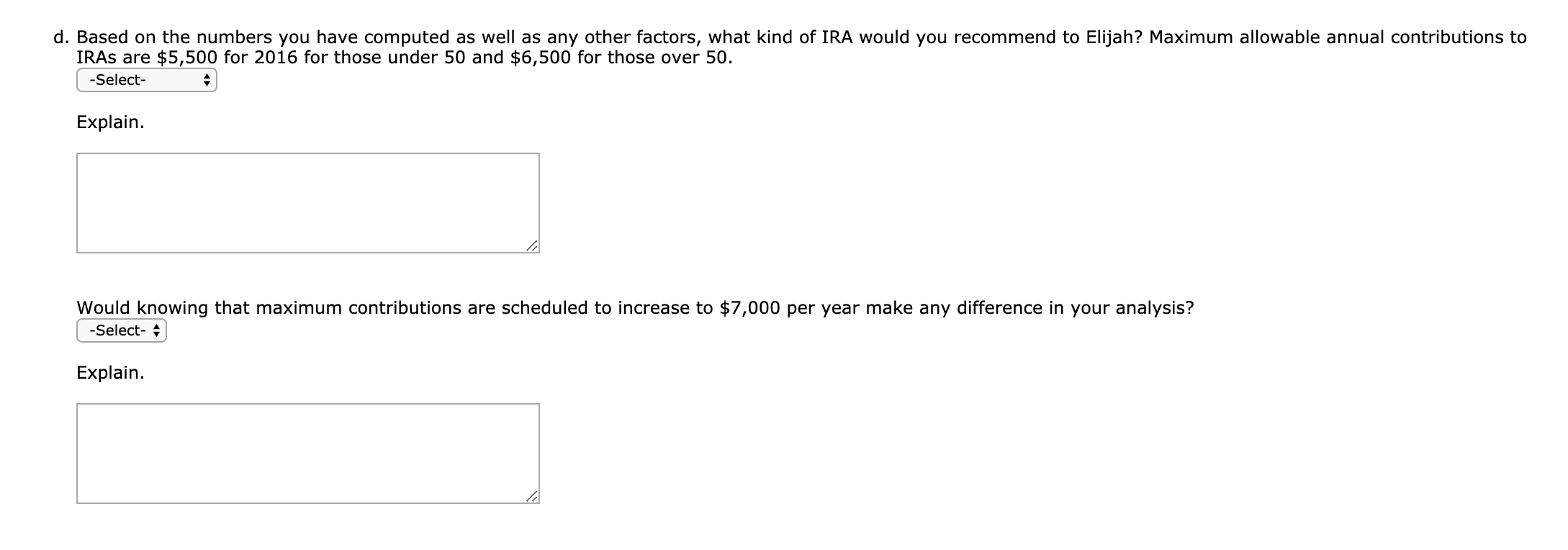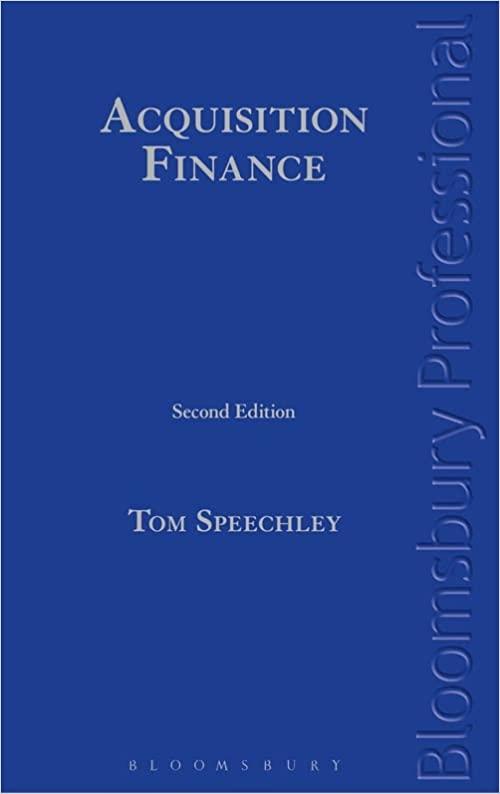

Elijah James is in his early 30s and is thinking about opening an IRA. He can't decide whether to open a traditional/deductible IRA or a Roth IRA, so he turns to you for help. a. To support your explanation, you decide to run some comparative numbers on the two types of accounts; for starters, use a 25-year period to show Elijah what contributions of $5,000 per year will amount to (after 25 years) if he can earn, say, 12 percent on his money. Round your answers to the nearest dollar. Traditional IRA Roth IRA Will the type of account he opens have any impact on this amount? -Select- Explain. b. Assuming that Elijah is in the 25 percent tax bracket (and will remain there for the next 25 years), determine the annual and total (over 25 years) tax savings he'll enjoy from the $5,000-a-year contributions to his IRA. Contrast the (annual and total) tax savings he'd generate from a traditional IRA with those from a Roth IRA. If an answer is zero, enter "0". Round your answers to the nearest dollar. Traditional IRA annual tax savings: Roth IRA annual tax savings: %24 Traditional IRA total tax savings: %24 Roth IRA total tax savings: c. Now, fast-forward 25 years. Given the size of Elijah's account in 25 years (as computed in part a), assume that he takes it all out in one lump sum. If he's now in the 25% tax bracket, how much will he have, after taxes, with a traditional IRA as compared with a Roth IRA? Round your answers to the nearest dollar. Traditional IRA: Roth IRA: How do the taxes computed here compare with those computed in part b? Comment on your findings. d. Based on the numbers you have computed as well as any other factors, what kind of IRA would you recommend to Elijah? Maximum allowable annual contributions to IRAS are $5,500 for 2016 for those under 50 and $6,500 for those over 50. -Select- Explain. Would knowing that maximum contributions are scheduled to increase to $7,000 per year make any difference in your analysis? -Select- + Explain. Elijah James is in his early 30s and is thinking about opening an IRA. He can't decide whether to open a traditional/deductible IRA or a Roth IRA, so he turns to you for help. a. To support your explanation, you decide to run some comparative numbers on the two types of accounts; for starters, use a 25-year period to show Elijah what contributions of $5,000 per year will amount to (after 25 years) if he can earn, say, 12 percent on his money. Round your answers to the nearest dollar. Traditional IRA Roth IRA Will the type of account he opens have any impact on this amount? -Select- Explain. b. Assuming that Elijah is in the 25 percent tax bracket (and will remain there for the next 25 years), determine the annual and total (over 25 years) tax savings he'll enjoy from the $5,000-a-year contributions to his IRA. Contrast the (annual and total) tax savings he'd generate from a traditional IRA with those from a Roth IRA. If an answer is zero, enter "0". Round your answers to the nearest dollar. Traditional IRA annual tax savings: Roth IRA annual tax savings: %24 Traditional IRA total tax savings: %24 Roth IRA total tax savings: c. Now, fast-forward 25 years. Given the size of Elijah's account in 25 years (as computed in part a), assume that he takes it all out in one lump sum. If he's now in the 25% tax bracket, how much will he have, after taxes, with a traditional IRA as compared with a Roth IRA? Round your answers to the nearest dollar. Traditional IRA: Roth IRA: How do the taxes computed here compare with those computed in part b? Comment on your findings. d. Based on the numbers you have computed as well as any other factors, what kind of IRA would you recommend to Elijah? Maximum allowable annual contributions to IRAS are $5,500 for 2016 for those under 50 and $6,500 for those over 50. -Select- Explain. Would knowing that maximum contributions are scheduled to increase to $7,000 per year make any difference in your analysis? -Select- + Explain








